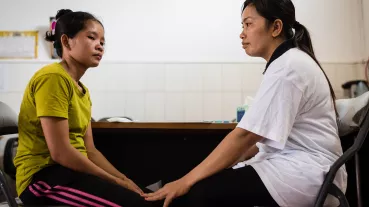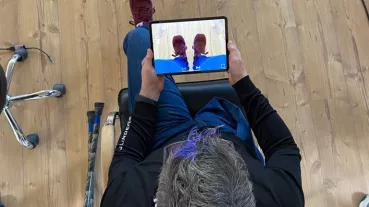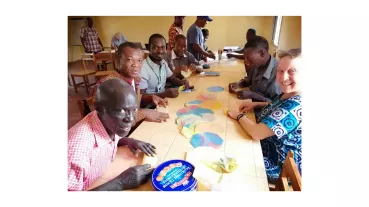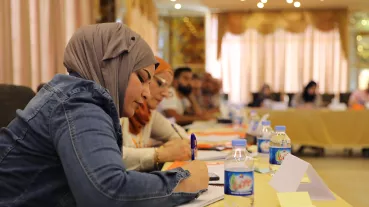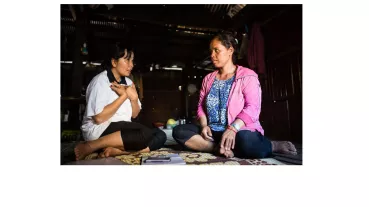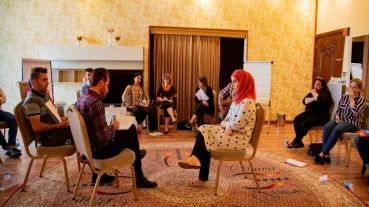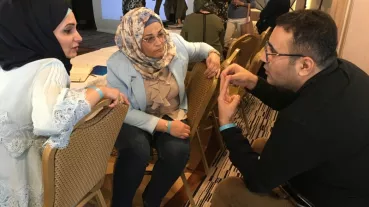CARE in Gatsibo District, Rwanda
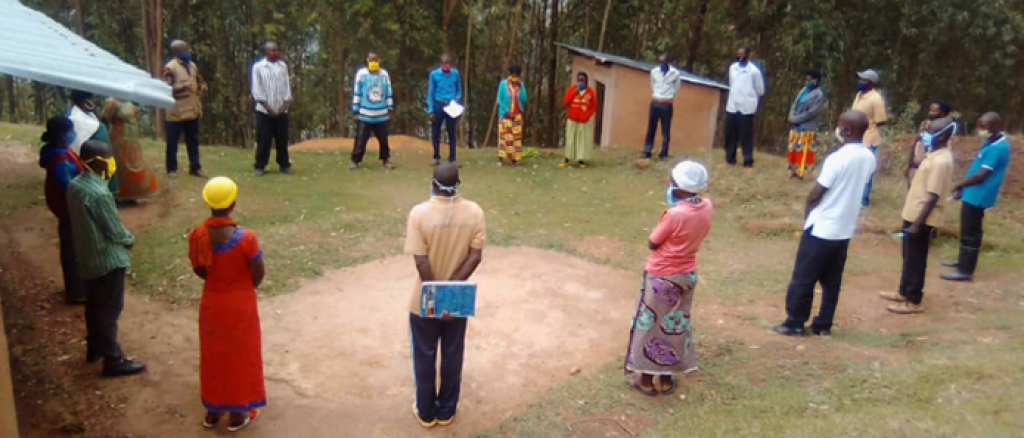
CARE in Gatsibo District, Rwanda
CARE means “Comprehensive solutions for increased Access to mental health care Rooted in communities and Enhancing public services”
Situation:
In developing countries treatment of MNS disorders (Mental Neurological Substance Abuse) are mostly neglected although they cause great suffering for those. These sufferings often even cause incomprehension and stigmatization based on prejudice. In Rwanda, there is also the traumatic experience of the 1994 genocide, which has left deep wounds in the souls of very many inhabitants. These manifest themselves in the form of depression, anxiety disorders or post-traumatic stress disorders i.e. more generally MNS disorders.
Objectives:
The objective of the project is to identify the estimated 3,500 people suffering from MNS conditions in the district of Gatsibo in the northern province of Rwanda as well as their families and communities, to provide comprehensive mental health services such as information about their suffering, basic psychological treatment and, if necessary prescribing medication or – in severe cases – deliver recovery and rehabilitation services.
- The number of appropriately trained workforce in the health system of the intervention area who are able to provide the required psychosocial services corresponds to the target.
- Those directly affected (i.e. people with MNS disorders within the intervention area) are identified (according to the estimations) and receive appropriate support.
- Awareness about mental health issues and reduction of stigma in the intervention area raised significantly at all level of society through appropriate measures.
- A dedicated package of training material based on modern communication methods (e.g. interactive voice recording) is provided - this addresses also infection protection measures against Covid-19.
- Recruitment and training of a workforce for the interventions (10 trainers, 22 health care providers and 650 community providers coached).
- Clinical and administrative supervision provided by Ndera Hospital the only psychiatric hospital in the country.
- Definition of precise care pathways for referring people with MNS conditions.
- Awareness-raising and anti-stigma Meetings and workshops in the communities of the intervention area to explain MNS diseases, address prejudice and stigmatisation. Target is to reach at least 30% of the population in the area of intervention.
- Regular Follow up-visits of people with MNS disorders, their families and caregivers.
- After the implementation of the project each local health centre in the intervention area will have about 6-7 health workers as contact persons for MNS disorders.
- At least 30% of the population is sensitised about MNS disorder and should consider it as a disease not as a curse or failure of a person.
- Estimated 650 social workers in the communities will be trained on identifying MNS disorders and providing basic psychological interventions in order to help those affected quickly and effectively and show them the way out.
- The project intelligently combines trainings which have already been developed in detail by WHO for the detection and treatment of MNS disorders* and the extensive network of social activities that AVSI Rwanda has established through other programmes. This is the first time in Rwanda that the problem of MNS disorders is being addressed on a broad basis.
- The project makes use of modern communication methods.
* Mental Health Gap Action Programme-Intervention Guide, MH Gap Action Programme-Humanitarian Intervention Guide, MH Gap Action Programme-Toolkit Community
Here you can find more information.
